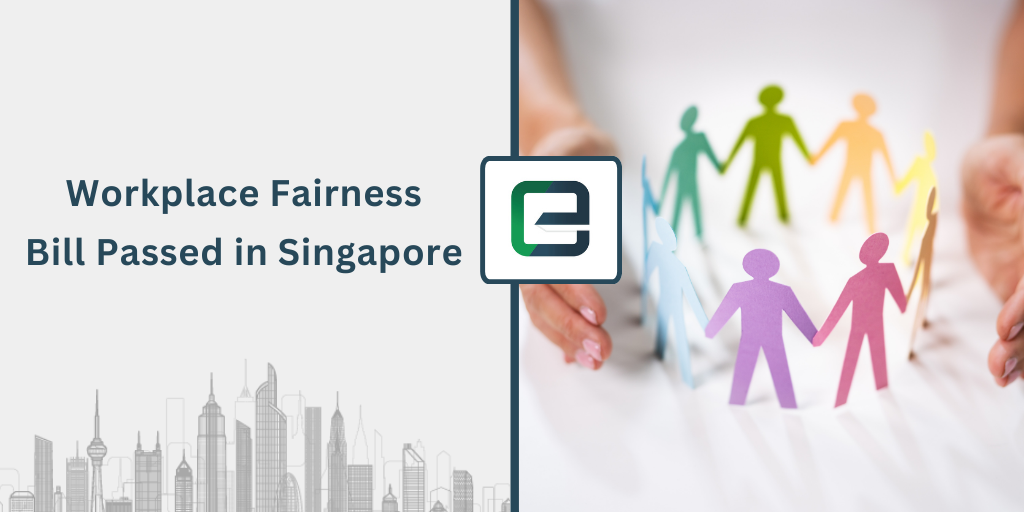Workplace Fairness Bill Passed in Singapore: Strengthening Anti-Discrimination Laws
Singapore’s Parliament passed the Workplace Fairness Bill on January 8, introducing stronger protections against workplace discrimination. The bill received unanimous support from Members of Parliament (MPs) and aims to reduce biases related to age, nationality, race, gender, and other factors in employment decisions
Balanced Approach to Workplace Fairness
Manpower Minister Tan See Leng addressed Parliament, acknowledging that while the bill is a step forward, it will take time to fully resolve workplace discrimination. He explained that creating fair policies requires careful consideration, as overly strict regulations could negatively impact businesses and job opportunities.
The bill took years to develop due to extensive consultations with employers, unions, and other stakeholders. Dr Tan emphasized the importance of striking a balance—protecting workers while ensuring businesses remain viable. Preserving workplace harmony is a key goal of this legislation.
Support from Unions and Employers
Following the bill’s approval, the National Trades Union Congress (NTUC) expressed its support. NTUC Secretary-General Ng Chee Meng stated that the organization has long advocated for stronger protections against biases in hiring and workplace treatment.
The Singapore National Employers Federation (SNEF) also played a role in shaping the bill. Since June 2023, SNEF has conducted nearly 40 sessions, including workshops and training, to educate over 3,000 employers about workplace fairness legislation. The organization pledged to ensure that the claims process is straightforward for both employers and employees.
Addressing Racial and Religious Discrimination
During an eight-hour debate, MPs raised concerns about workplace bias against minority communities. Workers’ Party MP Faisal Manap highlighted challenges faced by Muslim employees, particularly those requesting time off for Friday prayers. He emphasized that discrimination can undermine a person’s confidence and sense of self-worth.
Dr Tan reassured Parliament that race and religion are protected under the new law. Employers cannot penalize workers based on religious practices unless operational constraints make accommodation impossible. He urged businesses and employees to communicate openly to find practical solutions.
Covering Sexual Orientation and Gender Identity
While some MPs questioned why discrimination based on sexual orientation and gender identity was not explicitly included in the bill, Dr Tan explained that existing guidelines already provide protection in such cases. The Tripartite Guidelines on Fair Employment Practices (TGFEP) cover all forms of workplace discrimination, including against LGBTQ individuals. He assured Parliament that cases of bias would continue to be addressed under these guidelines.
Updates to the TGFEP to Cover Platform Workers
Nominated MP Jean See and MP He Ting Ru noted that the bill does not cover platform workers, such as delivery riders and private-hire drivers. They argued that platform algorithms could introduce bias, affecting job assignments and earnings.
Dr Tan stated that while the bill does not regulate platform work, updates to the TGFEP will clarify that platform operators should not discriminate based on personal characteristics. Workers who experience unfair treatment can seek assistance from the Tripartite Alliance for Fair and Progressive Employment Practices (Tafep).
Impact on Small Businesses
MPs also discussed challenges faced by small and medium-sized enterprises (SMEs). Companies with fewer than 25 employees are temporarily exempt from the bill, giving them five years to adjust. Labour MP Patrick Tay stressed that smaller businesses should not be indefinitely excluded from fairness regulations.
An MP also raised concerns about additional regulatory burdens on SMEs. Many already struggle to comply with existing workplace policies. He suggested that human resource professionals receive specialized training to implement fair employment practices effectively.
Looking Ahead
In his closing speech, Dr Tan thanked MPs for their input and assured them that workplace fairness policies will continue to evolve. The government remains committed to fostering an inclusive workforce while supporting business sustainability. Further refinements to the legislation may be introduced in the coming years based on industry feedback and social developments.









